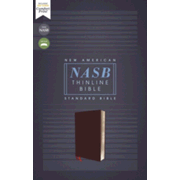We should strive to build an atmosphere of faith so that when Jesus Christ returns, He will find real faith in those He has called. Building real faith is nothing new and is not limited to our present age. Even in the first century as Christ was beginning His church, the Apostles said to the Lord, “Increase our faith” (Luke 17:5). They knew they needed more faith and they asked for guidance. Peter later writes that we must give diligent effort to increase and add to our faith (2 Peter 1:5–11).
To increase and add to your faith, start with asking God for more faith. Pray earnestly about this. Just as the disciples asked Jesus to increase their faith, we should do the same. Jesus’ response was to instruct His disciples to ask, seek, and to knock (Matthew 7:7). James offers the same advice (James 1:5).
Matthew chapter 7 is the last of three chapters that record the Sermon on the Mount. In chapter 7, Jesus commands His hearers not to pronounce shallow or hypocritical judgment and He describes God as a generous Father eager to give good things to His children when they ask.
Mathew 7:7 – Jesus Invites Us to keep On Asking, Seeking, and Knocking
Matthew’s telling of Jesus’ Sermon on the Mount (Matthew 5:1–2) continues as Jesus turns the topic back to prayer. Instead of providing a model prayer this time, Jesus describes the attitude through which the children of God should bring their requests to Him. This statement also speaks to God’s willingness to answer those who sincerely seek Him (Romans 1:20; Psalm 19:1; Matthew 7:8).
The fact that Jesus came back to the subject of prayer – already dealt with in some depth in Matthew 6:5-15 – shows the importance of prayer.
Prayer may be defined as communication of the individual with God. By example and precept, we are encouraged to ask for things of God. 1
In this three-fold description of prayer as asking, seeking, and knocking we see different aspects of prayer and different aspects of its reward.
In Matthew 7:7, there is a progressive intensity, going from ask to seek to knock. This might be a poetic arrangement, where “ask” means a single request, “seek” refers to something more persistent, and “knock” implies deep persistence.
The implication is something to the effect of “ask, ask again, and keep asking.” The Greek verbs are in a form that implies constant action.
Jesus told us to have intensity, passion, and persistence in prayer.
Different aspects of prayer and different aspects of its reward are shown in this three-fold description of prayer.
- Prayer is like asking in that we simply make our requests known to God, and everyone who asks receives. Receiving is the reward of asking.
- Prayer is like seeking in that we search after God, His word, and His will; and he who seeks finds. Finding is the reward of seeking.
- Prayer is like knocking until the door is opened, and we seek entrance into the great heavenly palace of our Great King. Entering through the opened door into His palace is the reward of knocking, and the best reward of all
The teaching of ask and receive tells us that we should approach God regularly to ask for our needs. And it also reveals God’s heart towards his children; he wants to give good gifts.
We should ask with confidence and humility, seek with care and application, and knock with earnestness and perseverance. 2 It is implied that we seek with a proper spirit, with humility, sincerity, and perseverance. It is implied, also, that we ask the things which it may be consistent for God to give – that is, things which he has promised to give, and which would be best for us, and most for his own honor (1 John 5:14).
Seek is still meant for prayer, and of seeking God, his face, and favor. Those that shall find are those who seek in a right way, through Christ, and with their whole hearts, diligently.
The idea of knocking may imply that we sense resistance. After all, if the door were already open, there would be no need to knock. Yet Jesus encouraged us, saying that even when we sense that the door is closed we must knock. Then do so and continue to do so, and we will be answered.
If the door were locked against us, we would need a burglar’s tools to break in, but that isn’t necessary; all we must do is knock.
Yet that image of knocking also implies that there is a door that can be opened. Jesus’ doors are meant to open. They were made on purpose for entrance, and so the blessed gospel of God is made on purpose for you to enter into life and peace. It would be of no use to knock at a wall, but you may wisely knock at a door. 3
Knocking is taken from the act of knocking at a door for admittance. (Luke 13:25; Revelation 3:20).
______________Affiliate link – SHOP: _______________
_This ad is for my favorite version of The Bible _
_____but click on it to go to the whole store______


NASB Comfort Print Thinline Bible, Red Letter Edition–bonded leather, burgundy (click here)
By Zondervan
The beloved 1995 Edition of the New American Standard Bible is now easier to read with Zondervan’s exclusive NASB Comfort Print® typeface. This edition of the NASB Thinline Bibles is available in a variety of sophisticated designs in a portable, easy-to-read format.
- The full text of the New American Standard Bible, 1995 Edition
- Exquisite, durable covers
- Less than one inch thick
- Double-column format
- Presentation page
- Two satin ribbon markers
- Words of Christ in red
- Exclusive Zondervan NASB Comfort Print 9 point type
Features:
____________________________________________
Consider the Daily Bread email message sent on 2/9/2024 which says,

Matthew 7:7 – Ask, and it will be given to you; seek, and you will find; knock, and it will be opened to you.”(NASB)
Jesus describes God as a generous Father eager to give good things to His children when they ask. Although He is not a Santa Clause, Jesus is a wonderful resource to ask and seek the growth of your faith. You should only seek a closer relationship with Christ to build your faith in Christ.
Jesus continued to clarify that these promises are not a means of manipulating God. Prayer is never presented in Scripture as a means to merely get our way as if He were merely magic or a system for success. Instead, these verses are an invitation to interact with a generous Father who loves to hear the prayers of His people.
Most of us know that truth because we’ve tried; we asked for one million dollars and we didn’t get it. And that’s because God isn’t some cosmic genie that grants every one of our wishes
You Can Receive The Daily Bread, for FREETo receive the Daily Bread email messages, free on Mon., Wed., and Fri., in your email inbox, just fill in the form below or send an email, and ask to be added, to jmikeh@jmhowington.com
Click Here to Scroll To Top of the Page
References:
- Henry C. Thiessen (revised by Vernon D. Doerksen), Lectures in Systematic Theology (Grand Rapids, MI: Eerdmans, 1981), pg. 303
- William Newton Clark, An Outline of Christian Theology (New York, NY: Scribner, 1901) https://www.studylight.org/commentaries/eng/acc/matthew-7.html
- Spurgeon, Charles Haddon. “Commentary on Matthew 7:7”. “Spurgeon’s Verse Expositions of the Bible”. https://www.studylight.org/commentaries/spe/john-14.html. 2011. These files are public domain.

